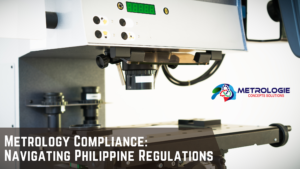In the dynamic landscape of manufacturing, where precision and quality are paramount, the role of metrology services cannot be overstated. Metrology, the science of measurement, plays a crucial role in ensuring accurate and standardized measurements across various manufacturing processes. This article delves into the profound impact of metrology services on Philippine manufacturing excellence, exploring how accurate measurements contribute to efficiency, quality control, and global competitiveness.
1. Introduction
Definition of Metrology Services
Metrology services encompass a range of activities aimed at ensuring accurate measurements in manufacturing processes. From dimensional measurements to material testing, these services play a vital role in maintaining the highest standards in production.
Overview of the Philippine Manufacturing Industry
Before delving into the impact of metrology services, let’s understand the backdrop—the Philippine manufacturing industry. With a diverse range of products and sectors, manufacturing is a key driver of the Philippine economy.
2. Importance of Accurate Measurements
Precision in Manufacturing Processes
Accurate measurements are the bedrock of precision in manufacturing. Whether it’s machining components or assembling products, deviations from specified measurements can lead to defects, inefficiencies, and increased costs.
Quality Control and Assurance
Metrology services contribute significantly to quality control and assurance by providing the means to verify and validate products at various stages of production. This ensures that the end products meet or exceed customer expectations.
3. Role of Metrology in Enhancing Manufacturing Excellence
Ensuring Compliance with Standards
Metrology services ensure that manufacturing processes comply with national and international standards. Adhering to these standards not only guarantees product quality but also facilitates smoother trade across borders.
Improving Efficiency and Productivity
By providing precise measurements, metrology enhances the efficiency of manufacturing processes. Manufacturers can optimize their workflows, reduce waste, and ultimately improve overall productivity.
4. Cutting-Edge Technology in Metrology Services
Advanced Measurement Techniques
Modern metrology services leverage cutting-edge technologies, such as laser scanning and coordinate measuring machines (CMMs), to achieve high levels of accuracy. These advanced techniques contribute to better measurement resolution and increased speed.
Integration of Industry 4.0 Technologies
In the era of Industry 4.0, metrology services are integrating with smart manufacturing technologies. IoT-enabled sensors and real-time data analytics further enhance the capability of metrology to monitor and control manufacturing processes.
5. Metrology Services and Global Competitiveness
Meeting International Standards
For Philippine manufacturers aiming to compete on a global scale, adherence to international standards is crucial. Metrology services play a pivotal role in ensuring that products meet the requirements of global markets.
Gaining Customer Trust and Confidence
Accurate measurements communicated through reliable metrology services instill confidence in customers. This trust is a valuable asset in today’s competitive market, fostering long-term relationships and repeat business.
6. Case Studies
Successful Implementation of Metrology in Philippine Manufacturing
Several success stories highlight the positive impact of metrology on Philippine manufacturing. Companies that have invested in state-of-the-art metrology services have reported improved product quality, reduced defects, and increased customer satisfaction.
7. Challenges and Solutions
Addressing Metrology Implementation Challenges
While the benefits of metrology are undeniable, challenges in implementation may arise. This section explores common challenges and offers practical solutions to ensure a smooth integration of metrology services into manufacturing processes.
Continuous Improvement Strategies
Metrology is not a one-time solution; it requires continuous improvement. This section discusses strategies for ongoing enhancement and adaptation to changing manufacturing landscapes.
8. Future Trends in Metrology
Emerging Technologies
The future of metrology holds exciting possibilities with emerging technologies like artificial intelligence and machine learning. These innovations are poised to revolutionize measurement accuracy and efficiency.
Sustainable Practices in Measurement
As sustainability becomes a key focus in manufacturing, metrology services are evolving to incorporate eco-friendly practices. From energy-efficient equipment to environmentally conscious measurement processes, the industry is moving towards a greener future.
9. Conclusion
In conclusion, the impact of metrology services on Philippine manufacturing excellence is undeniable. From ensuring precision in measurements to contributing to global competitiveness, metrology plays a pivotal role in shaping the future of manufacturing in the Philippines.
10. FAQs
What is metrology?
Metrology is the scientific study of measurement, encompassing a wide range of activities and techniques to ensure accurate and standardized measurements in various fields, including manufacturing.
How does metrology impact manufacturing excellence?
Metrology contributes to manufacturing excellence by ensuring precision in measurements, improving quality control, and enhancing overall efficiency and productivity.
Can small-scale manufacturers benefit from metrology services?
Absolutely. Metrology services are scalable and can be tailored to meet the specific needs of small-scale manufacturers, helping them improve product quality and competitiveness.
Are there any specific standards for metrology in the Philippines?
Yes, the Philippines adheres to international standards in metrology, ensuring that measurements align with global practices for trade and quality assurance.
How often should companies update their metrology equipment?
Regular updates are essential to stay current with technological advancements. Manufacturers should assess their equipment periodically and invest in upgrades to maintain accuracy and efficiency.




